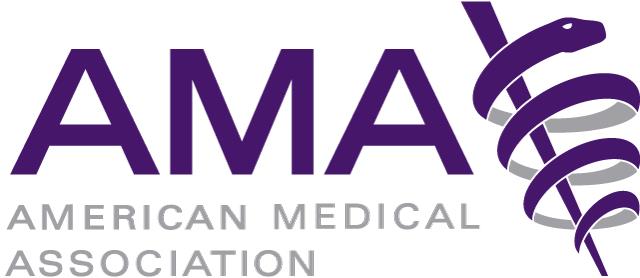HI 7200
Mental Health Support Specialist
Learn the skills to assist psychiatrists, therapists and mental health clients experiencing mental health and substance use disorders.
Program Overview
Certifications earned
What does a Mental Health Support Specialist do?
Mental health support staff have the opportunity to interact with clients on a day-to-day basis. During the day, mental health support specialists participate in client intake, crisis care and inpatient care, including assistance with clinical skills, like taking vital signs, as well as some activities of daily living, or ADLs. They support and assist the client through all phases of treatment, helping to provide a physically safe and therapeutic environment, which may include encouraging the client to participate in group therapy. Mental health support specialists also support the client by communicating observations and concerns to the client’s mental health care team. Accurate documentation of both clinical duties and observations are a key responsibility of the mental health support specialist.
- Distinguish intake, crisis care, inpatient care and discharge duties
- Recognize psychology and substance use terminology and apply that knowledge where applicable to psychiatric team communication
- Demonstrate skills in observation, communication, interpersonal needs and working well under stress
- Maintain client confidentiality and adhere to HIPAA and HITECH privacy and security laws
- Demonstrate understanding of Electronic HeaIth Record (EHR) functionality and documentation
What You’ll Learn – HI 7200 Mental Health Support Specialist
The Mental Health Support Specialist program prepares students for a rewarding and in-demand career in mental health care. In this profession, mental health support specialists assist licensed mental health professionals, such as psychiatrists, psychiatric nurse practitioners and therapists, in the comprehensive care of psychiatric patients.
The demand for qualified mental health support staff in the United States continues to grow at a projected rate of 11% by 2031. This program prepares students to work in a variety of mental health care settings. A focus on strong interpersonal and communication skills, as well as conflict management, are woven into the course to prepare students for all areas of mental health care.
This program prepares students to become Mental Health Technician Certified (MHTC) by the American Medical Certification Association (AMCA). Students who earn the AMCA designation have demonstrated the knowledge of processes and procedures in mental health care, pharmacology, medical office and patient care skills, including practice settings, and a broad understanding of psychological development, including mental health disorders.
The primary course in this program is H1-7013: Fundamentals of Mental Health Care, this highly interactive course immerses students into the world of a Mental Health Support Specialist through virtual scenario-based learning exercises and brings three-dimensional clinical skills demonstrations right to the learner’s desktop.
Because graduates will be working in a healthcare facility, it’s imperative they be able to speak and understand the language of medicine and have a fundamental understanding of basic human anatomy and physiology. Hl-1014: Introduction to Human Anatomy and Medical Terminology is included to lay this important foundation.
Today’s top job candidates not only need to be prepared to pass a certification exam but must also be equipped with soft skills and knowledge that allow for success on the job in any environment. This program contains training in professionalism designed with input from employers and professionals in the field of allied health. PS-1011: Professionalism in Allied Health equips students with essential soft skills that are in demand and expected by employers in a competitive job market.
Upon enrollment, students receive all necessary and required materials and courseware associated with the program, and they are not required to purchase additional components. Students are supported by highly skilled, trained, and certified Student Success Coaches throughout enrollment to assist with subject matter inquiries.
Payment for the MHTC exam is provided by MedCerts.
View More
Not Sure if Mental Health Support Specialist Training is Right For You?
Take our easy 2 minute Career Quiz!
Find your next careerSome MedCerts programs are restricted in certain states or regions. Please review our State Restriction page to see what restrictions there may be in your state/region or residence of employment to ensure you are eligible for enrollment.
These restrictions may not apply to students taking programs through an employer, academic or government-sponsored model – including MyCAA, GI Bill® Reimbursement and Army, Air Force or Coast Guard Credentialing Assistance. To determine eligibility, please confirm with your sponsor or review our military spouse MyCAA-approved or Military Credentialing Assistance-approved programs
Program Details

American Medical Association (AMA) Collaboration
MedCerts has integrated the AMA’s Blood Pressure Measurement Series into our allied health programs, so you’re trained in the most current, evidence-based techniques for accurate blood pressure measurement.
- High School Diploma or GED
- Web browser with internet connection
- Course registration & payment
- English language proficiency
- Expert-led video based training
- Introduction to Anatomy and Medical Terminology: A Course Companion (PDF)
- eBook: Foundations of Mental Health Care 8E
- Competency assessments
- National Certification exam fee
*The cost of all materials needed for this program are covered by MedCerts. They are not included in the tuition costs and are provided at no additional cost to students. However, students have access to these materials for a limited time frame aligned with their program. Access to these materials outside of this period is not guaranteed, and students may be responsible for costs associated with any extended access.
- Dedicated Student Success Advisors
- Tailored support based on performance & behavior
- Exam preparation process
- 1 yr. post-program access to Career Center & Career Coaches
Career Outlook

Mental Health Support Specialist
Job Opportunities
openings in the US
potential
Tuition Cost
Mental Health Support Specialist Training Online
Monthly, weekly and bi-weekly payment plan options are available. These payment plans include a 3.5% fee per transaction. Students who choose to pay in full will not be charged the transaction fee.
Active Duty Military Grants
MedCerts accepts education benefits from the Department of Defense for Active Duty Army, Coast Guard and Air Force and the Department of Veteran’s Affairs for GI Bill® Reimbursement.
Military Spouse Grants
Spouses of Active Duty Service Members in certain ranks may be eligible for assistance up to $2,000 per fiscal year or reimbursement for training.
Workforce Grants
MedCerts partners with American Job Centers in 30+ states and accepts Workforce Innovation and Opportunity Act (WIOA) and other workforce grant funding.
Veteran Grants
Veterans, active-duty service members and eligible dependents can enroll in select MedCerts training programs and receive reimbursement through the GI Bill® upon successful completion.
FAQs
Mental Health Support Specialist Online Certification Training Program—Frequently Asked Questions
A Mental Health Support Specialist assists psychiatrists, therapists and mental health clients in managing mental health and substance use disorders. They perform tasks such as client intake, crisis care, inpatient care, taking vital signs and aiding in daily living activities. They help create a safe, therapeutic environment, support clients through treatment phases and communicate observations to the mental health care team.
The career outlook for Mental Health Support Specialists is very positive, with available jobs expected to grow by 18% over the next ten years.
Salaries can range from $36,000 to $89,900 annually, depending on experience, location and the specific office or clinic.
To become a Mental Health Support Specialist, complete a training program like the one offered by MedCerts. This program covers mental health disorders, therapeutic communication, crisis intervention and HIPAA regulations. Graduates are prepared to provide support in various mental health settings and assist in client care, intake and daily living activities.
In the MedCerts online Mental Health Support Specialist certification training course, you will learn a comprehensive range of skills, including:
Understanding mental health disorders, therapeutic communication techniques, crisis intervention strategies, client intake and assessment procedures, inpatient and crisis care support, HIPAA regulations and compliance, vital signs monitoring and documentation and supporting daily living activities.
To enroll in the MedCerts’ Mental Health Support Specialist program, you will need a High School Diploma or GED, internet access, course registration and payment.
Tuition is competitively priced at $3,000. The cost includes all of your materials and registration fees for your examinations.
Yes, payment plans are available as low as $217 per month. Additionally, students may qualify for government funding and scholarships.
While MedCerts does not offer financial aid, students may be eligible for options through government grant-funded programs like:
The total program duration is 14 weeks if completing 15-20 hrs of coursework per week.
The program is developed with collaboration from industry-recognized subject matter experts and includes interactive simulations, interviews with real-world experts, game-based learning and more, catering to every type of learner.
Yes, the program includes a strategic exam preparation process and dedicated Student Success Advisors to provide tailored support based on performance.
The program includes expert-led video-based training, an eBook (“Foundations of Mental Health Care 8E”), a pdf textbook, (“Introduction to Anatomy and Medical Terminology: A Course Companion”), competency assessments and the national certification exam fee. All materials needed for the program are covered by MedCerts.
Some MedCerts programs are restricted in certain states or regions. Please review our State Restriction page to view what restrictions there may be in your state/region or residence of employment and ensure you are eligible for enrollment.
We’re not institutionally accredited as a training provider, but the certification you’ll earn in this program is accredited through the exam-issuing authority, AMCA. So while our school itself doesn’t hold accreditation, you’ll earn an accredited certification upon passing your national exam.
Disclaimers
- While MedCerts training and related target certifications may be accepted and/or approved by your state of residency, employers reserve the right to dictate prerequisite education, experience, or certification/licensure requirements for their positions. We strongly advise students to research target job posts from area employers and relevant state requirements, barriers, or restrictions prior to enrollment to ensure eligibility upon graduation.

